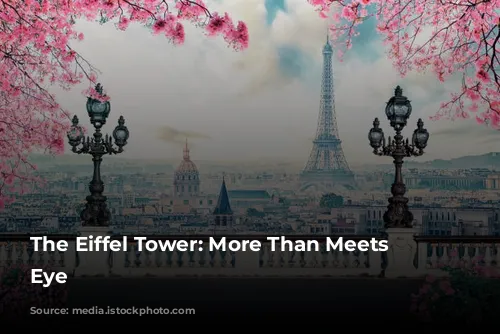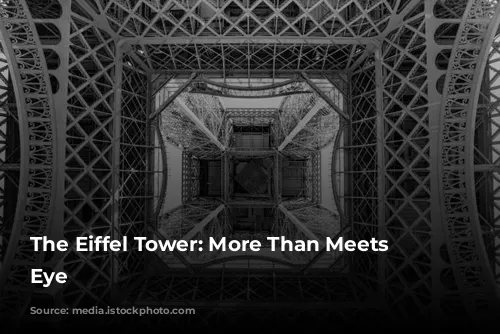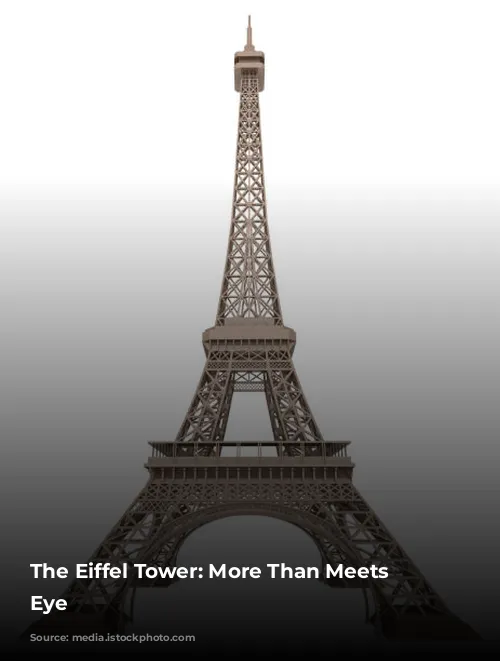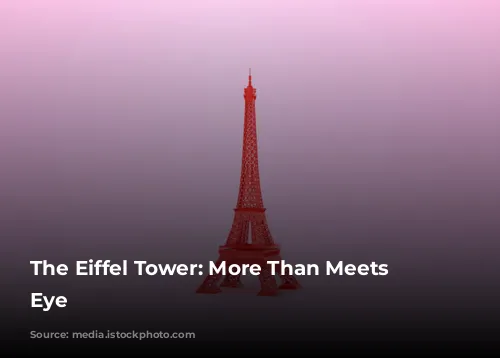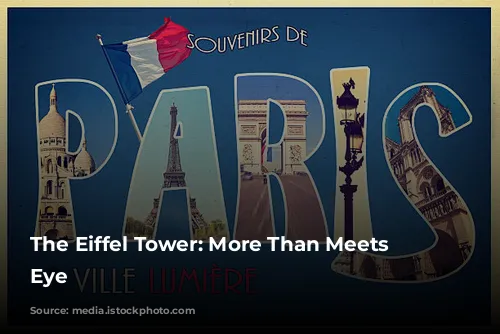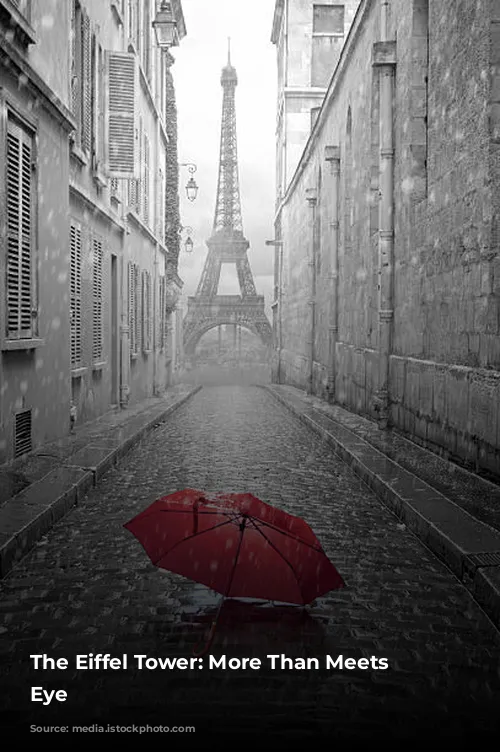The Eiffel Tower in Paris, France, is a global icon—one of the most recognizable landmarks on Earth. This towering structure, also known as the Iron Lady, attracts nearly seven million tourists each year. But beyond its fame, this Parisian gem hides some captivating secrets. Let’s take a peek behind the scenes and discover the unexpected stories of this architectural marvel.
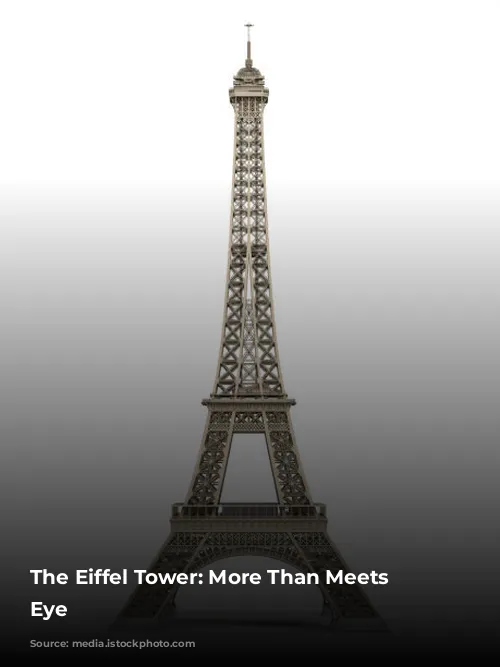
A Sky-High Residence
Imagine building the Eiffel Tower! Where else would you choose to live but at the top of your masterpiece? Gustave Eiffel, the tower’s visionary designer, built himself a luxurious apartment on the top level. This sky-high retreat featured plush carpets, beautiful paintings, and even a grand piano. Only a select few VIPs, like the legendary inventor Thomas Edison, were granted access to this exclusive space. The apartment remained untouched for decades after Eiffel’s passing in the 1920s. It was only in 2015 that this hidden treasure was finally revealed to the public.
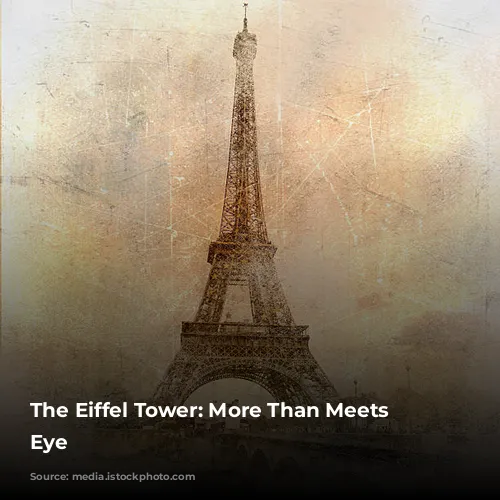
A Place for Scientific Discovery
The top of the Eiffel Tower seems like the ideal spot to study the stars and weather, right? Eiffel knew it too. He established two small laboratories on the third level for astronomers and meteorologists to conduct their research. Eiffel was also a keen scientist himself. To understand how objects move in the air, he conducted experiments by dropping objects attached to cords from the second level, observing their descent from about 380 feet above ground.
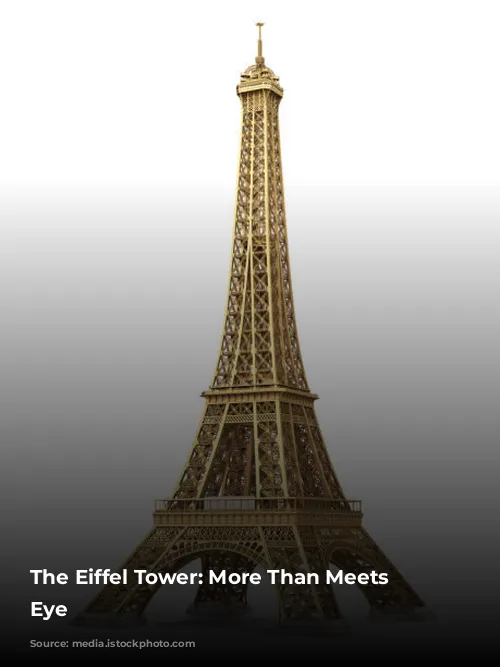
A Beacon of Sustainability
This iconic landmark is more than just a beautiful structure—it’s also a champion of environmental responsibility. In 2015, the Iron Lady received a green makeover, with workers installing two wind turbines on the second level. These turbines generate electricity to power the tower’s shops and restaurants, harnessing the power of the wind. In addition, a system was set up to collect rainwater and channel it directly to the tower’s toilets. The Eiffel Tower is truly a model of eco-conscious design!
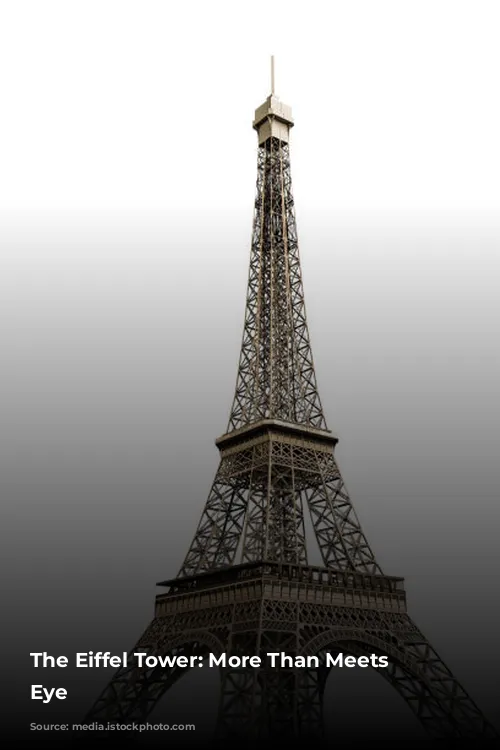
A Window to the Past: World’s Fairs and Secret Missions
The Eiffel Tower officially opened its doors to the world at the 1889 World’s Fair. These international expositions, which originated in London in 1851, showcase the latest inventions, architectural marvels, and artistic creations from around the globe. These fairs have been responsible for introducing numerous “futuristic” inventions, including the Ferris wheel, television, X-ray machines, and even ice cream cones! Today, these events, now called “expos,” take place every three years in a different city and country around the world.
Beyond its role as a cultural showcase, the Eiffel Tower also played a crucial role in protecting France during World War I. The tower’s radio and telegraph center became a vital communication hub for the French military, enabling them to connect with ground troops and naval vessels. It also served as an intelligence center, intercepting enemy messages. In 1916, the tower intercepted a message about a female spy known as Mata Hari. Using this crucial information, the French military tracked down and apprehended the spy, preventing further damage to their war effort.
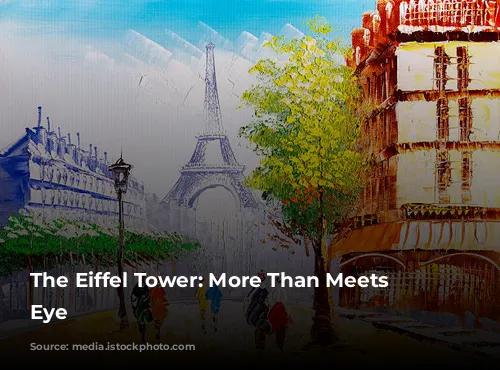
Thrills and Spills
While many visit the Eiffel Tower to soak in the breathtaking views, others seek more daring experiences. In 1889, a man climbed 704 steps on stilts! In 1952, three trapeze artists defied gravity by swinging from ropes without a net, 400 feet above the ground. And in 2010, a rollerblader took a thrilling plunge, skating down a 90-foot ramp set up under the tower’s first level.
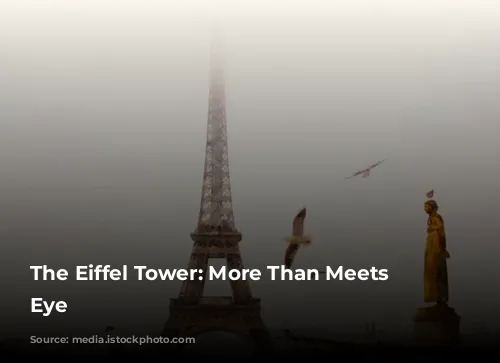
A Colorful History
The Eiffel Tower has had a dynamic history, and that includes its appearance! Originally, the structure was painted a dark red. In 1899, it was given a yellow makeover. About 50 years later, the tower received a bronze paint job. Today, the Eiffel Tower, which receives a fresh coat of paint every few years, is adorned with almost 16,000 gallons of paint!
From its sky-high apartment to its hidden role in wartime communication, the Eiffel Tower is far more than just a beautiful landmark. It’s a testament to human ingenuity, a symbol of Parisian style, and a storybook filled with unforgettable moments. So, next time you visit Paris, take a moment to appreciate this magnificent structure and the remarkable secrets it holds.
